This comprehensive guide delves into the joys and responsibilities of owning a Bernese Mountain Dog, a breed renowned for its gentle nature and striking tri-coloured coat. We'll cover everything from their lifespan and health concerns to their dietary needs, exercise requirements, and grooming routines. Let's embark on this journey together to ensure your Bernese Mountain Dog lives a long, happy, and healthy life.
What is the average lifespan of a Bernese Mountain Dog?
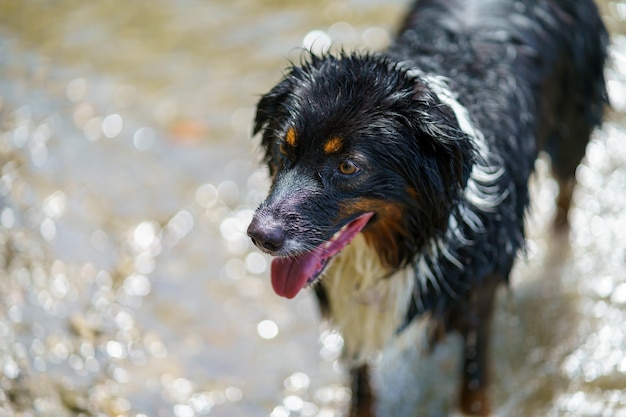
While their affectionate nature and playful spirit bring immeasurable joy, Bernese Mountain Dogs unfortunately have a shorter lifespan than many other breeds. The average lifespan hovers around 6 to 8 years, a reality that often saddens owners. This relatively short lifespan is due to a predisposition to certain health issues, which we will discuss later. However, responsible breeding practices, a healthy lifestyle, and diligent veterinary care can help extend their time with you. Remember, individual variations exist; some Bernese may live slightly longer, while others might have a shorter lifespan due to unforeseen circumstances.
Several factors can influence a Bernese Mountain Dog's longevity, including their genetic predisposition to specific conditions, their diet, the level of exercise they receive, and the quality of their veterinary care. A responsible breeder will take steps to minimise genetic predispositions, but even the healthiest dogs can succumb to illness. Early detection and treatment are key to mitigating potential problems.
| Factor | Impact on Lifespan |
|---|---|
| Genetics | Plays a crucial role; responsible breeders screen for hereditary diseases. |
| Diet | A balanced, high-quality diet is foundational to overall health and longevity. Avoid overfeeding. |
| Exercise | Regular, moderate exercise keeps them healthy and fit, but avoid overexertion, especially in puppies and seniors. |
| Veterinary Care | Regular check-ups, prompt treatment of illnesses, and preventative care are paramount. |
| Environmental Factors | Exposure to toxins, parasites, and infectious diseases can impact lifespan. |
What are the common health concerns associated with Bernese Mountain Dogs, and how can I mitigate them?

Unfortunately, Bernese Mountain Dogs are predisposed to several health issues, some more prevalent than others. Hip and elbow dysplasia, a common condition affecting many large breeds, leads to joint pain and lameness. This degenerative joint disease can significantly impact their mobility and quality of life as they age. Cancer is another significant concern, with various types affecting Bernese Mountain Dogs at higher rates than in many other breeds. Heart conditions, such as dilated cardiomyopathy (DCM), can also be a serious issue, often requiring ongoing management. Furthermore, eye problems, such as progressive retinal atrophy (PRA), and bloat (gastric torsion), a potentially life-threatening condition, are other health concerns to be aware of.
Responsible breeding practices are crucial in minimizing the risk of hereditary diseases. Reputable breeders will screen their dogs for these conditions, ensuring they are less likely to pass them on to their offspring. However, even with responsible breeding, some dogs will still develop these health problems. Early detection is key to successful management and treatment.
To help mitigate these risks:
- Choose a reputable breeder who conducts thorough health screenings on their breeding dogs.
- Maintain a healthy weight – obesity exacerbates joint problems and increases the risk of other health issues.
- Feed a high-quality diet formulated for their life stage and tailored to their individual needs; consult your vet.
- Provide regular, moderate exercise, but avoid overexertion, particularly in puppies and older dogs.
- Be vigilant for any signs of illness, such as changes in appetite, behaviour, or mobility, and seek veterinary attention promptly.
- Consider pet insurance to help manage the often substantial costs associated with veterinary care.
| Health Concern | Mitigation Strategies |
|---|---|
| Hip & Elbow Dysplasia | Careful breeding, maintaining a healthy weight, controlled exercise, and supplements as advised by your vet. |
| Cancer | Regular vet check-ups, early detection through screenings, and prompt treatment. |
| Heart Conditions | Regular veterinary check-ups, including echocardiograms, and appropriate medication if necessary. |
| Bloat | Avoid overfeeding, feed smaller, more frequent meals, avoid strenuous exercise immediately after eating, and consider elevated food bowls. |
| Eye Problems | Regular eye exams by a veterinary ophthalmologist. |
What is the ideal diet for a Bernese Mountain Dog at different life stages (puppy, adult, senior)?
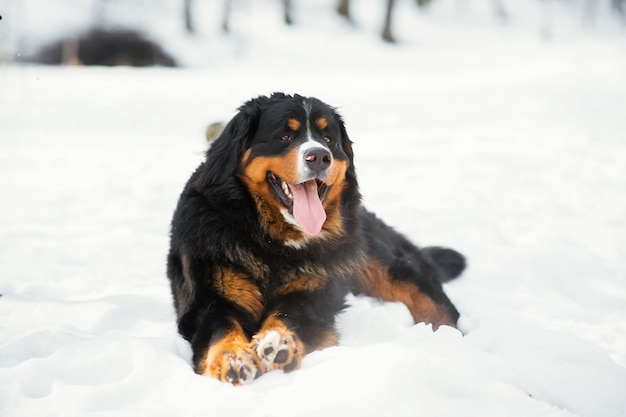
Nutritional needs vary significantly across a Bernese Mountain Dog's life. Puppies, in their rapid growth phase, require a diet rich in protein and calories to support their development. High-quality puppy food formulated for large breeds is essential. Adult Bernese Mountain Dogs need a balanced diet with moderate protein and fat levels, maintaining a healthy weight to avoid joint strain and other health issues. Senior dogs, often dealing with decreased activity levels and potential health problems, require a diet lower in calories and higher in fibre, often with added joint support supplements. Always choose a high-quality, age-appropriate food and consult your vet for individualised recommendations. Avoid feeding table scraps, which can upset their stomachs and contribute to weight gain.
The quality of the food you choose is crucial. Look for brands with clearly listed ingredients and avoid those containing fillers or artificial additives. Consider factors like the dog's activity level and any specific health concerns when selecting a diet. Always consult your vet if you have any concerns about your dog's diet or weight.
| Life Stage | Dietary Needs | Food Considerations |
|---|---|---|
| Puppy (0-12 months) | High protein, high calorie | Large breed puppy food, avoid overfeeding |
| Adult (1-6 years) | Balanced protein and fat, moderate calories | Adult large breed food, maintain ideal weight |
| Senior (6+ years) | Lower calorie, higher fibre, joint support | Senior large breed food, monitor weight carefully |
How much exercise does a Bernese Mountain Dog need daily, and what types of activities are suitable?
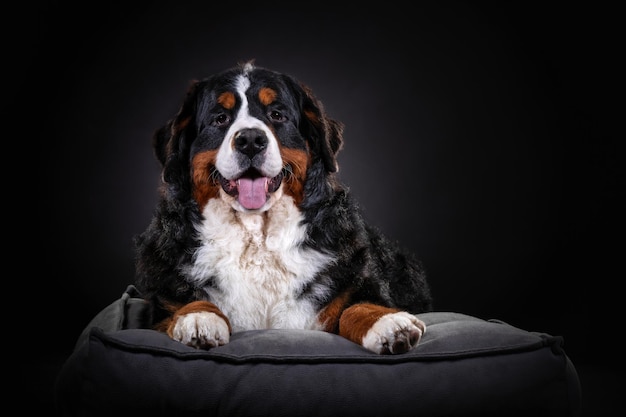
While Bernese Mountain Dogs are known for their calm and gentle demeanor, they still require a moderate amount of daily exercise to stay healthy and happy. Aim for at least two walks a day, allowing them to explore their surroundings and get some fresh air. These walks should be tailored to their age and physical condition; strenuous exercise is not recommended for puppies or senior dogs. Include playtime in your daily routine, whether in a secure backyard or a designated dog park. However, avoid overexertion, particularly in hot weather, as they are prone to overheating.
Remember, the focus should be on quality over quantity. A short, engaging walk can be more beneficial than a long, monotonous one. Vary your activities to keep your Bernese Mountain Dog mentally stimulated. They generally enjoy activities like fetching (if they are enthusiastic fetchers), swimming (a low-impact, joint-friendly exercise), and simple games of tug-of-war.
| Activity Type | Benefits | Considerations |
|---|---|---|
| Walking | Cardiovascular health, mental stimulation, socialisation | Avoid excessive heat or strenuous activity |
| Fetching | Physical exercise, mental stimulation | Not all Bernese love fetching, avoid if your dog shows disinterest |
| Swimming | Low-impact exercise, good for joints | Supervise carefully in unfamiliar waters |
| Playtime (Tug-of-war, interactive games) | Mental stimulation, bonding | Use appropriate toys |
What is the best grooming routine for a Bernese Mountain Dog to maintain a healthy coat and prevent matting?
The Bernese Mountain Dog's striking tri-coloured coat requires regular grooming to prevent matting and keep their skin healthy. Weekly brushing is essential, using a slicker brush or a similar tool to remove loose hair, dirt, and prevent mat formation. Their thick coat can easily trap debris, leading to skin irritation if not regularly brushed. Bathing should be done as needed, typically every few months, using a high-quality dog shampoo formulated for their coat type. Over-bathing can strip their coat of its natural oils, leading to dryness and irritation. Always rinse thoroughly to remove all traces of shampoo. Regular nail trimming is important to prevent overgrowth and potential discomfort. Finally, ear cleaning should be performed regularly, using a dog-specific ear cleaner to remove excess wax and prevent infections.
In addition to regular grooming, pay attention to any signs of skin irritation, such as redness, itching, or unusual shedding. Consult your vet if you notice any abnormalities in their coat or skin.
| Grooming Task | Frequency | Important Considerations |
|---|---|---|
| Brushing | Weekly (more frequently during shedding season) | Use a suitable brush to prevent matting |
| Bathing | Every 2-3 months (or as needed) | Use a dog-specific shampoo and rinse thoroughly |
| Nail Trimming | Every 2-4 weeks | Be careful not to cut into the quick |
| Ear Cleaning | Monthly or as needed | Use a dog-specific ear cleaner |
Are Bernese Mountain Dogs good with children and other pets? What socialization techniques are recommended?
Bernese Mountain Dogs are generally known for their gentle and patient nature, making them excellent companions for families with children. Their calm temperament and playful spirit make them ideal playmates for children of all ages. However, as with any breed, early and proper socialization is crucial. Introduce your puppy to various people, children (always under supervision), and other animals from a young age to help them develop into well-adjusted adults. Positive reinforcement training methods are highly effective in shaping their behaviour and building a strong bond.
Supervise all interactions between children and your Bernese Mountain Dog, especially during playtime, to ensure everyone's safety and well-being. Teach children how to interact respectfully with dogs, avoiding rough handling or startling movements. Early socialization can significantly reduce the risk of behavioural problems later in life.
| Socialization Technique | Description | Benefits |
|---|---|---|
| Early Exposure | Introduce puppies to various sights, sounds, people, and animals from a young age. | Builds confidence and reduces fear |
| Controlled Interactions | Supervise interactions between your dog and children or other pets. | Ensures safety and prevents negative experiences |
| Positive Reinforcement | Reward calm and appropriate behaviour. | Strengthens positive associations and builds a strong bond |
| Puppy Classes | Enroll your puppy in obedience classes to learn basic commands and socialization skills. | Provides professional guidance and structured socialization |
How much does it typically cost to own a Bernese Mountain Dog, considering food, vet care, grooming, and other expenses?
Owning a Bernese Mountain Dog is a significant financial commitment. While the initial cost of acquiring a puppy from a reputable breeder can be substantial, the ongoing expenses throughout their life are considerable. Food costs will vary depending on the quality of food you choose and your dog's size. Veterinary care, including preventative vaccinations, regular check-ups, and potential treatment for health issues, can be a major expense, particularly given their predisposition to certain conditions. Grooming, while achievable at home, may involve professional grooming services periodically. Toys, bedding, training aids, and other supplies all add to the overall cost. Consider purchasing pet insurance to help manage unexpected veterinary bills.
It's advisable to create a realistic budget before bringing a Bernese Mountain Dog home. Factor in all potential costs, including the initial purchase price, ongoing food expenses, veterinary care, grooming, insurance, and miscellaneous items.
| Expense Category | Approximate Annual Cost (GBP, Varies significantly) | Notes |
|---|---|---|
| Food | £400 - £800 | Higher-quality food will be more expensive |
| Vet Care (Preventative & Routine) | £500 - £1000 | This does not include unexpected illnesses or emergencies |
| Grooming | £100 - £300 | Professional grooming may be needed periodically |
| Toys & Supplies | £100 - £200 | Ongoing expenses for beds, leads, toys, etc |
| Pet Insurance (Optional, but highly recommended) | £300 - £800+ | Cost varies depending on coverage and your dog's age |
What are the key characteristics of a well-bred Bernese Mountain Dog, and how can I find a reputable breeder?
Choosing a responsible breeder is paramount to ensuring you acquire a healthy and well-adjusted Bernese Mountain Dog. A well-bred Bernese will conform to the breed standard, exhibiting the characteristic tri-coloured coat, strong muscular build, and calm temperament. A reputable breeder prioritizes the health and well-being of their dogs, conducting thorough health screenings (including hip and elbow dysplasia, eye exams, and cardiac tests) on their breeding stock. They will be knowledgeable about the breed's predispositions to specific health problems and will be transparent about the health history of their dogs.
Reputable breeders often have waiting lists and will take the time to interview potential owners to ensure their dogs are going to loving homes. They are passionate about the breed and will be happy to answer your questions and provide ongoing support. Avoid breeders who prioritize profit over the health and welfare of their dogs, those who offer multiple litters frequently, or those who are unwilling to provide health information about their breeding stock.
| Characteristic | Description | How to Identify a Reputable Breeder |
|---|---|---|
| Temperament | Friendly, loyal, good-natured, calm. | Breeder should describe the temperament of parent dogs. |
| Physique | Conforms to breed standard, muscular, well-proportioned. | Breeder should show dogs conforming to breed standard. |
| Health Testing | Breeder should provide evidence of health testing for parents (hips, elbows, eyes, heart). | Ask for health certificates and screening results. |
| Socialization | Puppies should be well socialized and confident. | Visit and observe how puppies are raised. |
What are some essential items I need to purchase before bringing a Bernese Mountain Dog home?
Before your new furry friend arrives, ensure you have a comfortable and safe environment ready for them. This includes a high-quality dog bed, suitable for their size, offering comfort and support. Food and water bowls, preferably heavy and non-tippable, are essential. A well-fitting collar and lead, along with identification tags, are crucial for walks and safety. Consider a harness as well, particularly for puppies or dogs prone to pulling. Toys are vital for mental stimulation and play, choosing a variety of types appropriate for their size and chewing habits. A crate can provide a safe and secure space for your dog, particularly useful for house training. Finally, consider purchasing pet insurance, providing financial protection against unforeseen veterinary expenses.
| Essential Item | Purpose | Considerations |
|---|---|---|
| Bed | Comfortable sleeping space. | Choose a size appropriate for the dog's size and growth. |
| Food & Water Bowls | For feeding and hydration. | Choose heavy, non-tippable bowls. |
| Collar & Lead/Harness | For walks and control. | Ensure a proper fit. |
| Toys | For mental stimulation and play. | Choose durable, appropriately sized toys. |
| Crate (Optional) | For training and a safe space. | Size should allow for comfortable movement. |
| Pet Insurance | Financial protection against veterinary bills. | Research different policies and choose the best coverage. |
Everyone is watching

Bernese Mountain Dog Breed Information and Care Guide
DOGS & PUPPIESThis comprehensive guide delves into the joys and responsibilities of owning a Bernese Mountain Dog, a breed renowned for its gentle nature and striki...
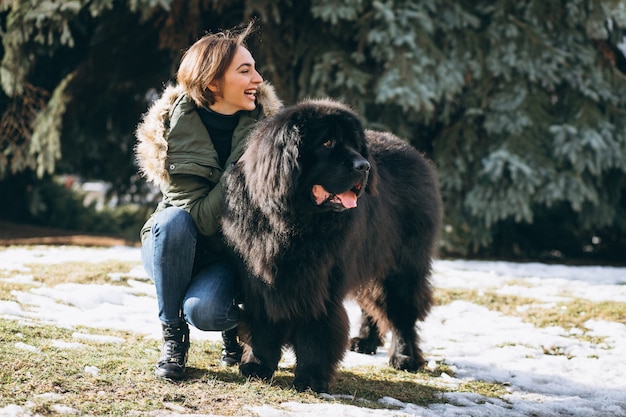
Newfoundland Dog Breed Information
DOGS & PUPPIESNewfoundland Dog Breed Information: A Comprehensive GuideThinking about welcoming a Newfoundland into your life? These magnificent dogs are known for...
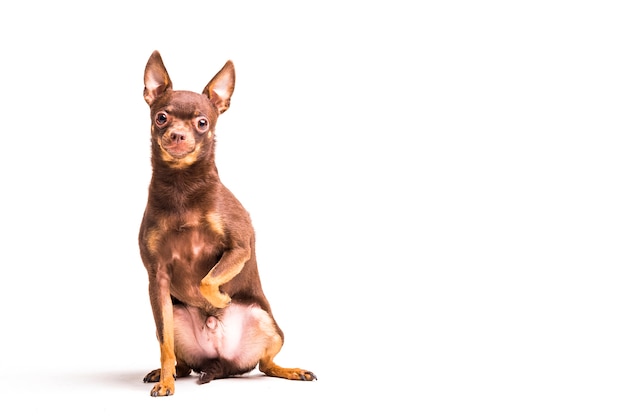
Australian Cattle Dog Breed Information
DOGS & PUPPIESAustralian Cattle Dog Breed InformationThinking about welcoming an Australian Cattle Dog into your life? These spirited and intelligent dogs are trul...
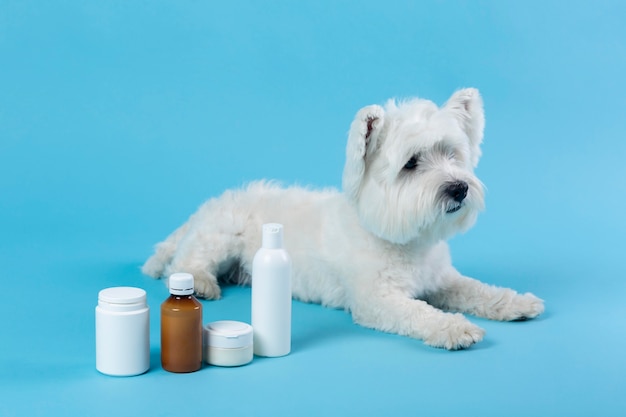
Hypoallergenic Dog Breeds A Comprehensive Guide
DOGS & PUPPIESWhat does "hypoallergenic" truly mean in terms of dog breeds, and are there varying degrees of hypoallergenicity?The term "hypoallergenic" is often ba...
Latest articles
-

Australian Cattle Dog Breed Information
DOGS & PUPPIESAustralian Cattle Dog Breed InformationThinking about welcoming an Australian Cattle Dog into your life? These spirited and intelligent dogs are trul...
-

Hypoallergenic Dog Breeds A Comprehensive Guide
DOGS & PUPPIESWhat does "hypoallergenic" truly mean in terms of dog breeds, and are there varying degrees of hypoallergenicity?The term "hypoallergenic" is often ba...
-

Newfoundland Dog Breed Information
DOGS & PUPPIESNewfoundland Dog Breed Information: A Comprehensive GuideThinking about welcoming a Newfoundland into your life? These magnificent dogs are known for...
-

Bernese Mountain Dog Breed Information and Care Guide
DOGS & PUPPIESThis comprehensive guide delves into the joys and responsibilities of owning a Bernese Mountain Dog, a breed renowned for its gentle nature and striki...
